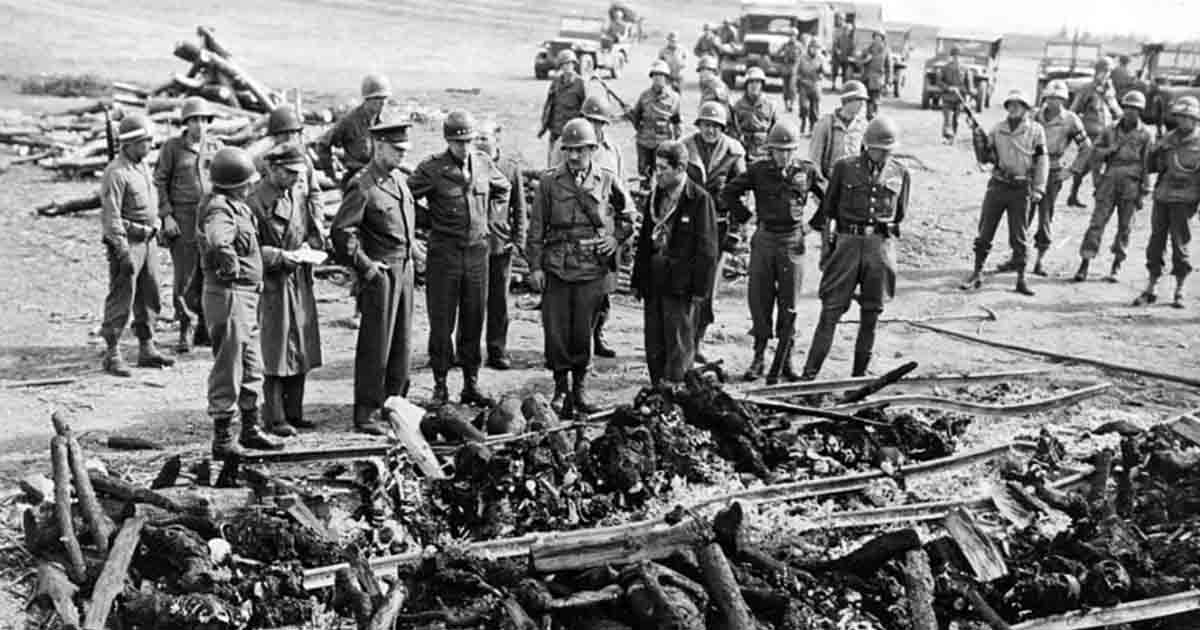HOLOCAUST (Thảm họa diệt chủng Holocaust) là gì?
Holocaust là cuộc đàn áp có hệ thống, được nhà nước bảo trợ và giết hại sáu triệu người Do Thái bởi chế độ Đức Quốc xã cùng các đồng minh và cộng tác viên của nó.
Đức Quốc xã lên nắm quyền ở Đức vào tháng 1 năm 1933. Họ tin rằng người Đức thuộc chủng tộc “thượng đẳng” hơn tất cả những người khác. Họ tuyên bố rằng người Do Thái thuộc một chủng tộc thấp kém và là mối đe dọa đối với cái gọi là cộng đồng chủng tộc Đức.
Trong thời kỳ Đức Quốc xã, chính quyền Đức cũng nhắm mục tiêu vào các nhóm khác do nhận thức được sự kém cỏi về chủng tộc và sinh học của họ: Roma (Gypsies), người khuyết tật, một số dân tộc Slav (Ba Lan, Nga và những người khác), tù nhân chiến tranh Liên Xô và Da đen Mọi người. Các nhóm khác bị đàn áp vì lý do chính trị, tư tưởng và hành vi, trong số đó có những người theo chủ nghĩa Cộng sản, Xã hội và những người đồng tính luyến ái.
Chủ đề Holocaust – Thảm họa diệt chủng Holocaust là một chủ đề chính trong chương trình học môn Social Studies – Xã hội học của trẻ em Hoa Kỳ để hiểu về thảm họa Holocaust này.
Xem bài viết giải nghĩa và mẫu câu các từ vựng đề tài Holocaust – Thảm họa diệt chủng Holocaust dưới đây để cùng học với bé môn Social Studies nhé.
- Ôn tập với Vocabulary Quiz chủ đề Holocaust – Thảm họa diệt chủng Holocaust
- Chơi game Word Search chủ đề Holocaust – Thảm họa diệt chủng Holocaust
Từ vựng chủ đề Holocaust – Thảm họa diệt chủng Holocaust
antisemitism (n) chủ nghĩa chống lại người Do Thái
The intense dislike for and against Jewish people
→ It looks at the traditional indicators of antisemitism: incidents on the streets, synagogue desecrations, and other hate crimes.

—
aryan (n) người Aryan
Those descended from an Indo-European speaking people who embraced racialist thought, sharing the idea with Nazis
→ Previous to this the Aryan settlements, along the three routes they followed in their penetration into India, had remained isolated, independent and small communities.

—
bricha (n) phong chào Bricha
Organized movement of Jews by Hitler
→ Bricha also called the Bericha Movement.

—
concentration camps (n) trại tập trung
A place where large numbers of political prisoners or persecuted minorities were imprisoned, especially in Nazi Germany
→ The years 1939–1942 saw a marked expansion in the concentration camp system.

—
death camp (n) trại tử thần
A prison camp for political prisoners or prisoners of war, in which many die from conditions or mass execution
→ Nazi Germany used six extermination camps also called death camps or killing centers.

—
dehumanization (n) sự mất tính người, tàn bạo
The act of degrading people based on their best qualities
→ Dehumanization is the denial of full humanness in others and the cruelty and suffering that accompanies it.

—
displacement (n) sự dời chỗ
The moving of something from its position so something else can take the place
→ We have already called attention to the gradual displacement of the gild merchant by the craft organizations.

—
euthanasia (n) chết không đau đớn, an tử
The painless killing of a patient, human or animal, that is suffering from an incurable and painful disease or irreversible coma
→ However, since this shelter accepts any animal brought to it, there are cases of humane euthanasia for space issues.

—
genocide (n) sự diệt chủng
The deliberate killing of a large group of people, often of a specific ethnic group
→ The Holocaust, also known as the Shoah, was the genocide of European Jews during World War II.

—
gestapo (n) lực lượng cảnh sát bí mật
A German secret police under Nazi rule that suppressed opposition to the Nazis
→ During World War II, the Gestapo played a key role in the Holocaust.

—
holocaust (n) sự tàn sát
The mass murder of Jewish people under the German Nazi rule from 1941 to 1945
→ Holocaust is the systematic state-sponsored killing of six million Jewish men, women, and children and millions of others by Nazi Germany and its collaborators during World War II.

—
marranos (n) người Do Thái Tây Ban Nha và Bồ Đào Nha
Sephardic Jewish people living in the Iberianpeninsula that were forced to convert to Catholicism
→ Marranos were Spanish and Portuguese Jews living in the Iberian Peninsula who converted or were forced to convert to Christianity during the Middle Ages, yet continued to practice Judaism in secret.

—
pogrom (n) cuộc bạo động Pogrom
An organized massacre of a particular ethnic group
→ A pogrom is a violent riot aimed at the massacre or expulsion of an ethnic or religious group, particularly one aimed at Jews.

—
propaganda (n) sự tuyên truyền
The dissemination of biased or misleading information to cause a point of view
→ The Nazis effectively used propaganda to win the support of millions of Germans in a democracy.

